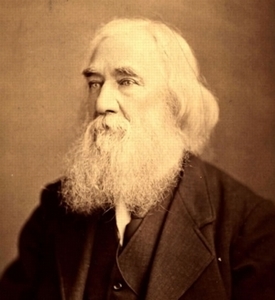Liberty Matters
Consent, Legitimacy, and Risk

Randy says that “if a constitution contains adequate procedures to assure that laws imposed on nonconsenting persons are just (or not unjust), it can be legitimate even if not consented to unanimously.” Legitimacy, in turn, is important because “[a] law can be legitimate because it is produced according to procedures to assure that it is just, and yet be unjust because in this case the procedures (which can never be perfect) have failed. Such a law would be binding in conscience unless its injustice was somehow established."
In other words, you might be duty-bound to obey an unjust law if that law was produced by a procedure that is generally pretty good at producing only just laws.
I have a couple of worries about this view. First, who gets to decide what count as “adequate procedures”? One of the advantages of requiring universal consent is that each and every individual can decide on his or her own. If I’m selling a legal system, and you don’t think my procedures are very reliable, you can always say “no.” If we deny individuals this veto power, then we need to have some other way of ensuring that procedures are reliable. But what is it?
Second, by what means must the injustice of a law be “established” in order for it not to be binding in conscience? Must the injustice of a law be recognized by some state-sanctioned authoritative body, like the Supreme Court? Or would it be enough for an individual subject to “establish” the injustice of the law on her own, based on her own understanding of morality and the proper scope of state action? The latter view comes close to establishing a kind of de facto requirement of universal consent, which Randy wants to avoid. But is it really plausible to say that an individual is duty-bound to obey a law that she sincerely believes to be unjust, and that really is unjust, simply because it was produced by a procedure that has (somehow) been established to be fairly reliable?
Randy is no doubt correct that lawmaking is like sausage-making, at least in the most famous respect in which those two enterprises are often compared. But I get to choose who sells me sausage, and which sausage-makers’ procedures are reliable enough to be worth the risk of a stomachache. And that makes an important difference – not just in terms of the incentival and informational effects noted by Rod, but in the moral permissibility of imposing risk on innocent persons. People who knowingly and voluntarily subject themselves to others’ risky procedures might be morally bound to accept the results when those risks turn out badly. But I’m much less confident that the same is true for individuals who, without ever having had the opportunity to say “no,” are subjected to risky procedures by their governments.
Copyright and Fair Use Statement
“Liberty Matters” is the copyright of Liberty Fund, Inc. This material is put on line to further the educational goals of Liberty Fund, Inc. These essays and responses may be quoted and otherwise used under “fair use” provisions for educational and academic purposes. To reprint these essays in course booklets requires the prior permission of Liberty Fund, Inc. Please contact oll@libertyfund.org if you have any questions.